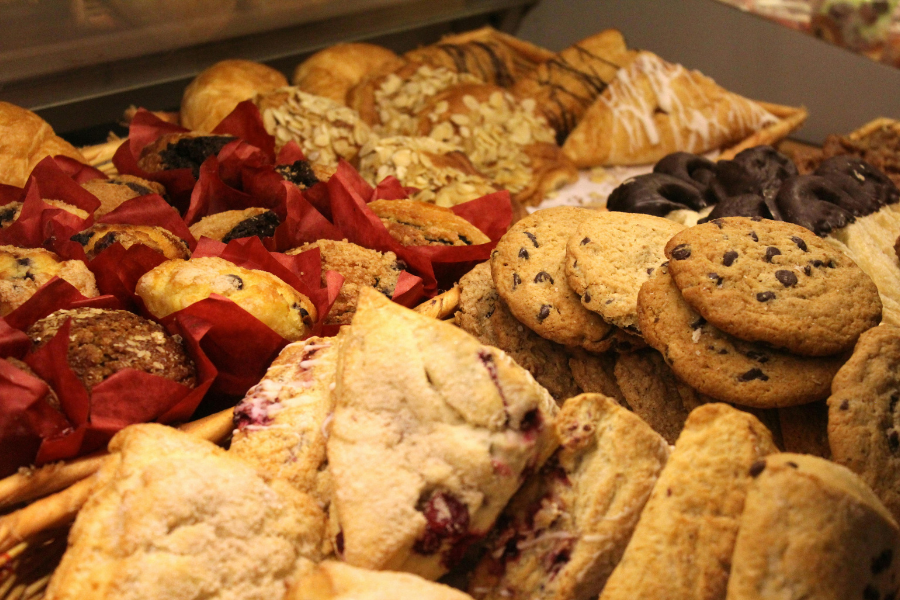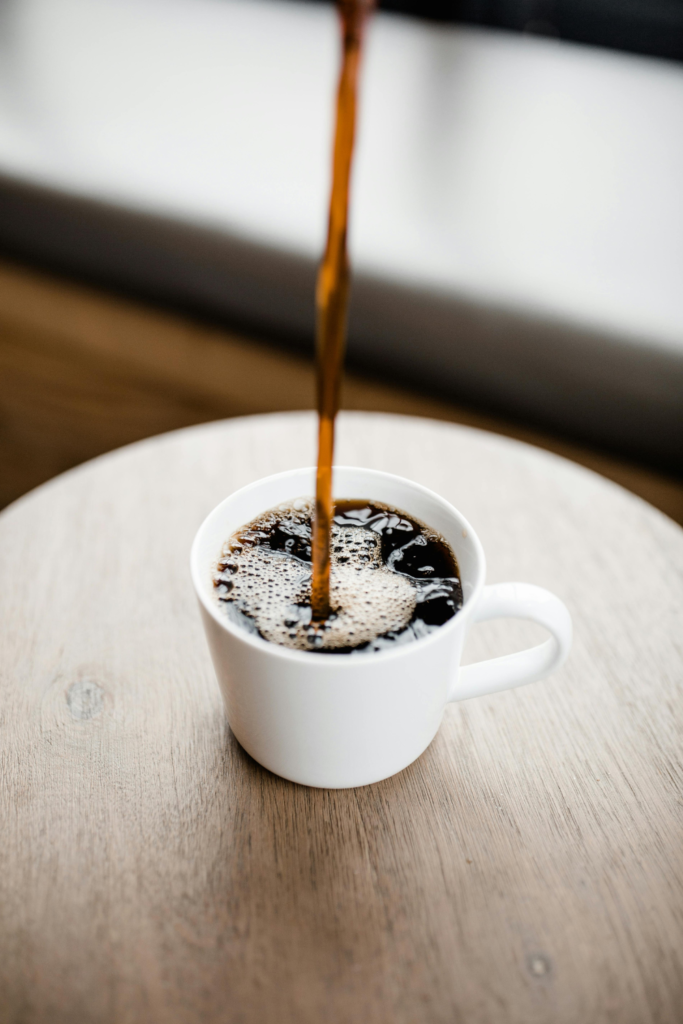Why would you want to reduce ghrelin to manage your hunger? Well, ghrelin is the hormone that will make it very difficult for you to lose fat. If you cannot keep this hormone under control, then you can’t stain a caloric deficit or even manage long-term fat loss.

In a previous article, we spoke about how leptin can be your best friend hormone on a fat loss plan. Well, ghrelin has the potential to be your worst enemy when it comes to losing fat.
In this article, we are going to discuss:
- What is Ghrelin?
- Ways to Suppress Ghrelin for Fat Loss
What is Ghrelin?
Ghrelin is your body’s primary hunger hormone. It is produced by gastric cells in the stomach and sends a signal to your brain indicating a desire to eat.
Ghrelin is not an inherently bad hormone. As a matter of fact, we need ghrelin elevated at certain times of the day to ensure fat burning is taking place.
If you are 100% satiated in a caloric deficit, you are probably not in a caloric deficit. A good rule of thumb for fat loss is to eat to about 70-85% satiety.
This will depend on how much fat you have to lose and how quickly you want to lose it.
In other words, if you have a significant amount of weight to lose, you might want to eat at a 30% caloric deficit. If you don’t have much weight to lose, you may want to eat at a 15% deficit.
If you are somewhere in the middle, you might not want to do anything bigger than a 20% deficit.
Ways to Suppress Ghrelin for Fat Loss
1. Get More Sleep
Sleeping more is one of the most effective ways to minimize ghrelin. Many people say getting 7 hours of sleep a night is a “luxury”, but it’s really a necessity. Studies have shown sleep deprivation can increase ghrelin by up to 28%.
In other words, you can go into a 28% caloric surplus due to just a couple nights of poor sleep. This can lead to weight gain over time.
When you have too many nights of sub-optimal sleep, not only is the stress hormone cortisol elevated, but human growth hormone is decreased. If your body perceives too many stressors in its environment metabolic rate can decline.
Cravings for junk food and refined carbohydrates also increase as result of poor sleep. Reason being the reward pathway part of your brain is activated.
When your body is under high levels of chronic stress, your ability to make good dietary decisions becomes impaired. Psychologically, you gravitate towards more junk food as a way of coping with stress.
If you make sufficient sleep a priority and not an afterthought, you will have an easier time managing your cravings. Therefore, your ability to manage ghrelin in a calorie deficit would become easier.
2. Practice Intermittent Fasting Everyday
Intermittent fasting is great for reducing ghrelin and eliminating psychological eating. When you do a fast that exceeds 12 hours, your body starts to metabolize fat for energy. Basically, ghrelin levels become suppressed and leptin levels become elevated.
Leptin is your main satiety hormone. It prevents you from overeating. In addition to the increase in leptin, fasting promotes other hormones that are beneficial for fat loss including:
- Hormone Growth Hormone
- Testosterone in men
If you want to learn more about the health benefits of intermittent fasting or how you can get started with intermittent fasting, check out this article Intermittent Fasting Windows.
If you are already familiar with intermittent fasting but want to learn how to make it a lifestyle, check out this article The Most Lifestyle-Friendly Approach to Intermittent Fasting.
3. Consume Black Coffee While Fasting

Black coffee acts as an appetite suppressant. There are components in black coffee that help shuttle fat cells into the bloodstream and allow fat to be metabolized as energy, thus suppressing ghrelin.
Essentially, intermittent fasting and black coffee are working in partnership with each other to keep ghrelin hormone low as you endure a fast.
It is best to consume black coffee during the daytime, since we should ideally be fasting during the morning and early afternoon. You don’t want to use caffeine at night. It can disrupt your sleep.
If you are interested in learning more about the amazing benefits of coffee, check out this article How Coffee Can Improve Your Health and Fitness.
4. Go for a Walk While Fasting
Walking is the best exercise you can perform to decrease ghrelin levels. It works even better if you can go for a long walk in a fasted state. Walking suppresses hunger by utilizing your fat storage as energy.
If you compare walking to running or high intensity interval training, you are utilizing more of your carbohydrate storage for energy when you run or perform HIIT.
If this gets depleted too quickly, ghrelin can skyrocket. If ghrelin skyrockets, you overeat and go into surplus of calories.
The combination of sleep, intermittent fasting, black coffee, and walking is incredible for lowering ghrelin and maintaining a calorie deficit.
If you want to read more about the profound benefits of walking, check out this article Why Walking is the Best Exercise for Long-Term Fat Loss.
5. Reduce the Number of Liquid Calories You’re Consuming
Most forms of liquid calories do nothing as far as reducing ghrelin. You are most likely drinking high-sugar beverages that’s spiking your appetite. Calories can be better controlled when you eat them as opposed to drink them.
You would be better off just drinking water throughout the day and with your meals. If you’re going to consume liquid calories, it’s best to stick to things like:
- A 30-calorie per serving unsweetened almond milk.
- A 45-calorie per serving unsweetened oat milk.
- Coffee with a little bit of unsweetened creamer
For fat loss, don’t consume more than 1 serving a day of either almond milk or oat milk. Even though these are both “healthy” beverages, the calories can add up quickly.
If you are a social person, it would be more fun to allocate some of your liquid calories towards alcohol. Hard to believe, but moderate alcohol consumption does have some health benefits.
If you’re not drinking to excess or intoxication, a moderate amount of alcohol in your diet is fine for fat loss.
High quality whiskey is the best form of alcohol you can consume. If you don’t add sugar or simple syrup to it, whiskey can be a very satiating beverage to have after a dinner meal. It would help suppress ghrelin levels.
If you want to learn more about the amazing benefits of whiskey, check out this post 8 Surprising Health Benefits of Drinking Whiskey.
6. Stop Snacking All Day

There is nothing wrong with having a small calorie-controlled snack every day, but snacking constantly throughout the day is one of the worst dietary habits we have as a culture.
Snacking doesn’t do anything as far as reducing ghrelin or hunger.
In fact, ghrelin increases from excessive snacking because there is never a point where you’re binge eating chips and you’re satiated. There is never a point where you’re indulging in cashew nuts, and you feel full.
You can easily binge 1,000 plus calories of these foods, scratch your head, and wonder why you’re not losing weight. You must be willing to track the calories in the snack if you want to keep it in your diet.
Most snacks are high in carbohydrates and fats while being low in protein. Please don’t misunderstand, carbs and fats are great for you, but without sufficient protein, you can’t control ghrelin.
If you can’t control ghrelin, you can’t manage an energy deficit, if you can’t manage an energy deficit, you won’t lose fat.
Protein is your most filling macronutrient. Your body would keep triggering hunger until it gets enough protein.
If you need an understanding of the macros you should be hitting, go to this article Best Macronutrient Split For Fat Loss and Building Muscle.
7. Eat Enough Fruits and Vegetables
Fruits and Vegetables contain a dense amount of micronutrients. These kinds of nutrients do a better job at keeping you full on a fat loss plan as opposed to just focusing on macro-nutrient intake alone.
It would help to keep ghrelin under control if you consumed no more than 1 to 2 pieces of fibrous fruit a day. Calories from fruit still must be accounted for. Yes, fruit has a lot of health benefits but if you overconsume it, you can gain weight.
This is why smoothies are not recommended for fat loss dieting. There is little to no satiety factor when drinking a smoothie. You are basically consuming a bunch of fruit blended with these healthy milks and flat seeds.
In your mind, a big smoothie may contain just a couple hundred calories, but if you check the nutritional information on the website, it really has 900 calories. Also, the smoothie will be very low in protein.
A “meal” that is 900 calories with only 9grams of protein is a bad caloric investment.
When it comes to vegetables, you should have it with all or most of your meals. Veggies are typically low in calories. They are even lower in calories than fruit.
However, calories from vegetables should still be accounted for too.
Some of the best vegetables you can consume to lower ghrelin includes:
- Broccoli
- Spinach
- Kale
- Lettuce
- Corn
- Cabbage
- Carrots
- Tomatoes
Be cautious of large salads. Like smoothies, they are not very satisfying for the number of calories and protein you are getting. Large restaurant salads typically contain a lot of butter and hidden oils to make it tasty.
Large salads are the reason a lot of people go out to eat at restaurants and can’t finish their entrée. They already spent a lot of their calories on salad and bread sticks.
If their goal is to lose fat, they would have been better off skipping the pre-meal salad, skipping the bread sticks, and just ordering their entrée with a small side of veggies.
Conclusion
The main takeaway from this article is you must keep ghrelin hormone under control if you are trying to cut fat. If you are constantly hungry, you can’t sustain a caloric deficit, which is fundamental for fat loss.
The best practices for minimizing ghrelin include:
- Sleeping enough
- Practicing intermittent fasting
- Having black coffee during a fast
- Doing more walking
- Cutting back on liquid calories
- Reframing from snacking all day.
- Getting enough fruit and vegetables in your diet.
Ghrelin is just one of several hormones you need to manage on a weight loss plan. If you want to learn more about the other 6, go to this article 7 Hormones You Must Manage on a Weight Loss Program.

One Response